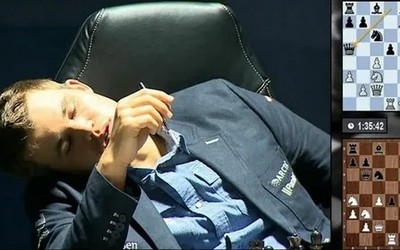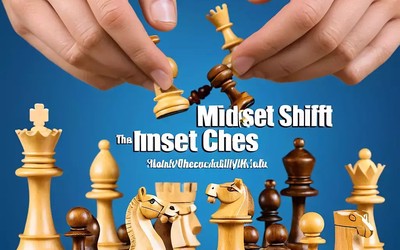
Discover a strategy from any position
Discover a strategy from any positionEver faced a chess position and felt lost? After diving into this newsletter, you'll be equipped to devise a winning plan for any scenario.
Back on November 3rd, I shared insights in my article, "How To Think During A Chess Game." I emphasized the importance of two key questions for spotting tactical opportunities:
- What does my opponent's move aim to achieve?
- What's my opponent's response if I make my move?
But what if there are no obvious tactical moves? That's where asking more questions comes in!
Throughout the game, posing insightful questions directs your focus to the right areas. With chess positions being so diverse, there's no one-size-fits-all method. Instead, I'll outline some questions that have helped me uncover solid plans and introduce a resource to enhance your planning skills.
Let's dive in!
Question #1: Who gains from trading Queens? This simple query, passed down from my coach and former Kasparov second, Iossif Dorfman, helps determine which side should aim for the initiative or simplification.
Consider these scenarios where trading Queens benefits you:
- You're ahead in material.
- Your King is safer than your opponent's.
- You hold a long-term positional advantage.
- Your opponent struggles in endgames.
Anecdote: Back in my club days, there was a player who dreaded endgames and avoided them at all costs. Consequently, he wasn't particularly adept at them.
My personal motto was: "Hand me an endgame down a pawn, and victory is assured." When facing him, I actively sought out opportunities to trade Queens in almost every position.
Conversely, if trading Queens would worsen your situation, look ahead and try to steer clear of it, even if it means sacrificing some material or accepting doubled pawns.
Question #2: Which Piece Is Lagging Behind? Not utilizing your entire army leaves significant potential untapped. I picked up the habit of communicating with my pieces from my initial coach and have relied on it ever since.
You can address each piece individually, asking, "Are you content in your current position?" Then, prioritize improving the piece that responds most negatively until it's no longer the least effective piece on your side.
Put simply, whenever you're unsure of your next move, focus on enhancing your most poorly placed piece. For more on this method, you can explore my "talk to your pieces" article.
Question #3: What Strategy Is My Opponent Eyeing? As humans, certain strategies appeal to us more than others, regardless of their effectiveness. Some captivating patterns include:
- Striving for checkmate
- Utilizing double checks
- Executing grand sacrifices
- Making moves that appear brilliant
By identifying these enticing strategies your opponent might be contemplating, you can thwart their plans. Doing so repeatedly throughout a game can frustrate your opponent.
Even more impactful is recognizing such a strategy and uncovering its flaws. Present your opponent with the opportunity for a flashy sacrifice that ultimately fails, and you'll likely secure the point.
Be magnanimous and allow your opponent to appear brilliant. By the time they realize your intentions, it will be too late for them to alter their fate.
Enhancing Your Ability to Develop Plans Chess presents a multitude of positions and time constraints, making it a highly intricate game. Consequently, there isn't a single strategic thinking process that guarantees success in every scenario.
If you found the aforementioned questions helpful and desire a more thorough exploration of a similar approach, I wholeheartedly suggest ChessMood's 7Q Method course. This course delves into seven questions you can pose to yourself to uncover an appropriate plan for any given position.



